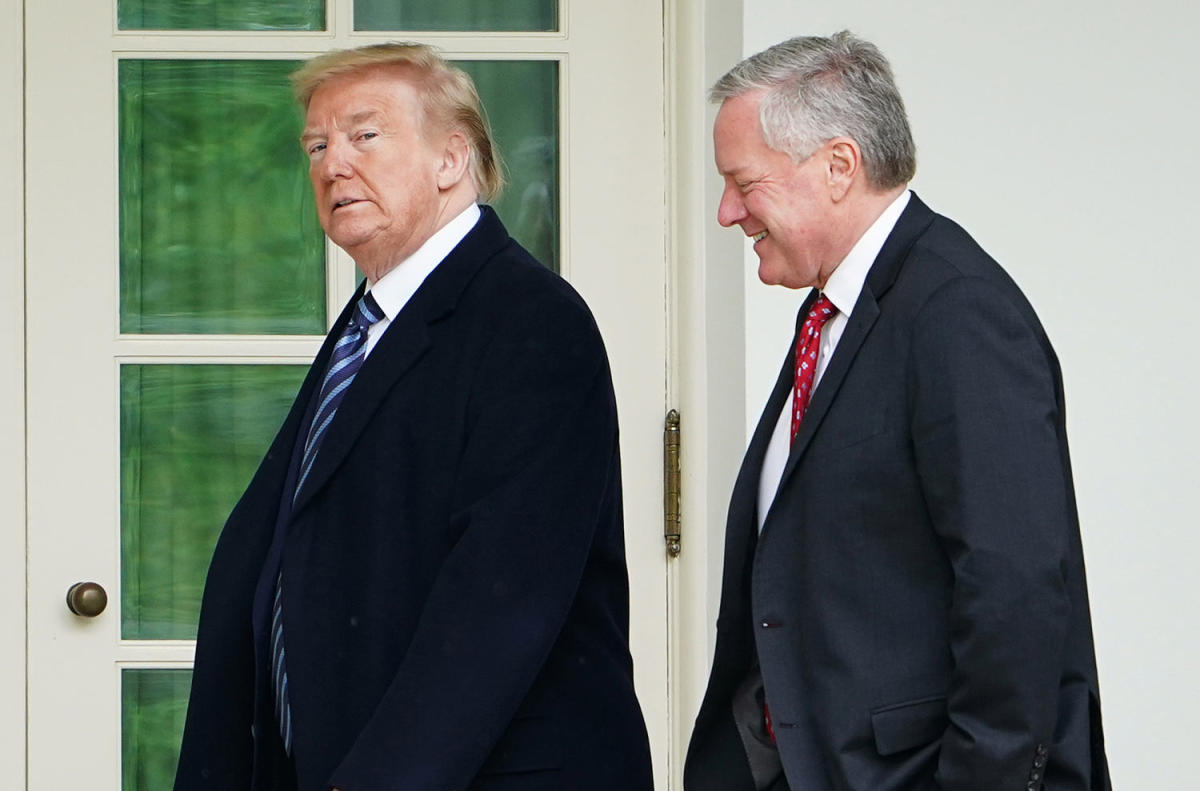It’s been another big legal week for Donald Trump. His first criminal trial kicked off in New York, and his Supreme Court immunity hearing just took place in Washington. He also made a legal cameo in Arizona, as an unindicted alleged co-conspirator in a new indictment stemming from efforts to subvert the 2020 presidential election.
Major figures in Trump world, such as Rudy Giuliani and Mark Meadows, are charged in the state indictment, along with so-called fake electors.
But why isn’t Trump charged?
As we know, the former president has been charged over the 2020 election in two of his four criminal cases, in Washington, D.C., and Georgia. He has pleaded not guilty in all of his criminal cases and denied wrongdoing.
There are multiple possible reasons that Trump isn’t charged in Arizona. (Incredibly, as my MSNBC colleague Steve Benen pointed out, we also just learned that Trump, along with Giuliani and Meadows, is considered an unindicted co-conspirator in Michigan’s “fake elector” case.)
One thing to keep in mind is that prosecutors aren’t all the same; the ones who brought the Arizona case may simply have a different strategy and view of the alleged plot and attendant proof required than, say, the prosecutors who charged Trump in Georgia. Relatedly, we don’t know exactly what happened in the grand jury and what grand jurors thought of any potential charges against the former president.
Another thing to keep in mind is that Arizona prosecutors may very well want to charge Trump but chose not to at this time for tactical reasons. Among such possibilities is that they are trying to get existing defendants to “flip” on the former president. Or, given the nearing presidential election, state prosecutors may first want to see whether Trump takes office again, given the possibility that his victory could jam up his prosecution on the state level, even if he couldn’t pardon the case like he could his federal ones.
Relatedly, the prosecutors may want to see what the Supreme Court says in its forthcoming immunity ruling in the appeal that also stems from 2020-related charges.
Of course, this thought exercise assumes a good reason for Trump’s escaping charges in the Arizona indictment. If Trump’s political ascendancy has taught us nothing else, it’s that there may not be logic to find behind every corner. But we may learn more in the fullness of time.
Subscribe to the Deadline: Legal Newsletter for weekly updates on the top legal stories, including news from the Supreme Court, the Donald Trump cases and more.
This article was originally published on MSNBC.com
